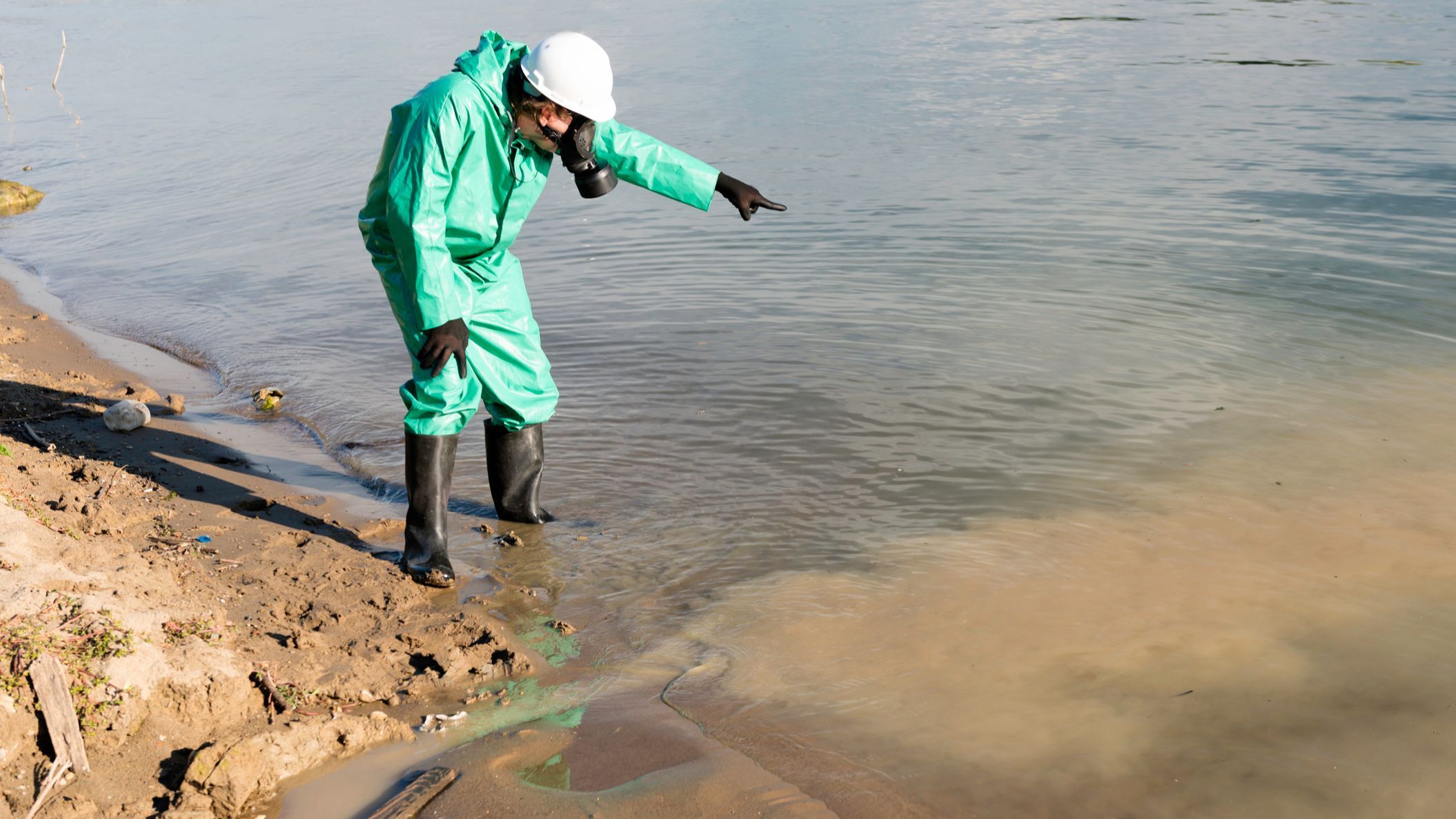Technicians take samples from the river.
The community epidemic in Tarazona, Zaragoza is very active and has affected nearly 500 people
Cases of gastroenteritis are caused by water contaminated with Cryptosporidium protozoa.
It is one of the leading causes of most gastrointestinal diseases transmitted through contaminated water.
So far they have been spotted in Tarazona (Zaragoza) More than 460 cases of gastroenteritisoocysts of parasitic protozoa from the water of the Queles River, a tributary of the Ebro River Cryptosporidium.Most of those affected have Mild diarrhea, abdominal cramps, and fever.
Drinking water is restricted.No outbreak has been detected so far and some preventive measures have been taken, such as Do not drink tap water or use it for cooking or brushing your teeth. Some towns in the neighboring communities of Navarra and Castile and León, through which the Queles River passes, are also on alert.
What is Cryptosporidium protozoa?
Cryptosporidium It is a ubiquitous intestinal protozoa that parasitizes domestic and wild animals, as well as humans. It is one of the main causes of most gastrointestinal diseases. Spreads worldwide through contaminated water and food. Conditions that cause watery diarrhea are common. Actually, Cryptosporidium It is the second leading cause of moderate to severe diarrhea in children under two years of age and the leading cause of death worldwide.
Most infections clear spontaneously in immunocompetent hosts, but They may be associated with chronic symptoms, malnutrition, and other complications in high-risk patients. Cryptosporidiosis accounts for 0.6% to 7.3% of diarrheal diseases in countries with modern health systems, and this proportion is even higher in areas with poor sanitation. The general clinical picture is characterized by watery diarrhea, which may be accompanied by abdominal cramping, loss of appetite, low-grade fever, nausea, vomiting, and weight loss.
how it spreads
Its transmission mechanism is feces-oral, Includes transmission from person to person, animal to person, and transmission from water and food sources. The pathogen can be present in the environment as oocysts containing four sporozoites, which are the infective form of the parasite. The incubation period after exposure ranges from two to ten days, with an average of seven days. Once ingested, the oocysts pass into the small intestine and are excreted, releasing sporozoites.
Sporozoites colonize the small intestinal wall and penetrate the epithelial cells, enabling asexual reproduction. Thick-walled oocysts can be produced from each infected cell and can be excreted in the feces and persist in the environment. These cells also produce thin-walled oocysts that can self-infect the patient. This autoinfection is thought to be responsible for increased disease severity in immunocompromised patients.
{{ #cards }}
{{#section.link.href}} {{section.link.title}} {{/section.link.href}}
{{title.data}}
{{/card}}
water treatment plant
The capacity is Cryptosporidium Surviving high chlorine concentrations, as well as disinfectant concentrations commonly used in water treatment, has always been a challenge for water treatment plant operators.Contaminated drinking and recreational water accounts for the majority of water exposure Cryptosporidium kind. in high-income countries. Cases occur frequently every year in Europe and the United States. In the United States, 76 Cryptosporidium outbreaks were linked to bathing in pools, hot tubs, and water parks with poorly disinfected water between 2015 and 2019. There are 2,492 cases in total. The largest outbreaks were in Milwaukee, USA, in 1993, with 400,000 cases, and in Sweden, in 2010, with 27,000 cases.
Cryptosporidium parvum and Cryptosporidium hominis They are responsible for most cases of cryptosporidiosis in humans. Recently detected Cryptosporidium hominis and other Cryptosporidium species in wild Galician foxes It may be suggested that the jungle and domestic cycles of this parasite in rural settings may overlap, indicating active transmission events between farm animals and wild animals, opening the possibility of transmission to humans. The most important reservoirs of human disease are humans, cattle, and other domestic animals.
Spanish situation
In Spain, cryptosporidiosis is a notifiable disease. In recent years, there has been increasing interest in identifying possible events of anthropogenic and, to a greater extent, zoonotic transmission of this parasite. The presence of the pathogen in production animals (livestock), companion animals (dogs and cats), and wildlife may indicate a potentially important role for this pathogen as a natural reservoir of human infection.
Prevention of cryptosporidiosis requires appropriate hygiene measures and proper hand washing, especially in health centers and day care centers and after contact with infected soil, animals or people. Some other helpful precautions include not drinking or swallowing water from rivers, streams, or uncontrolled water sources. Practice safe sex practices to prevent infections from anal contact. Avoid drinking tap water during international travel to areas with poor sanitation. In areas with active epidemics, it is recommended to eat only cooked food, avoid unpasteurized milk and juice, and boil drinking water, including for brushing teeth and washing food.

